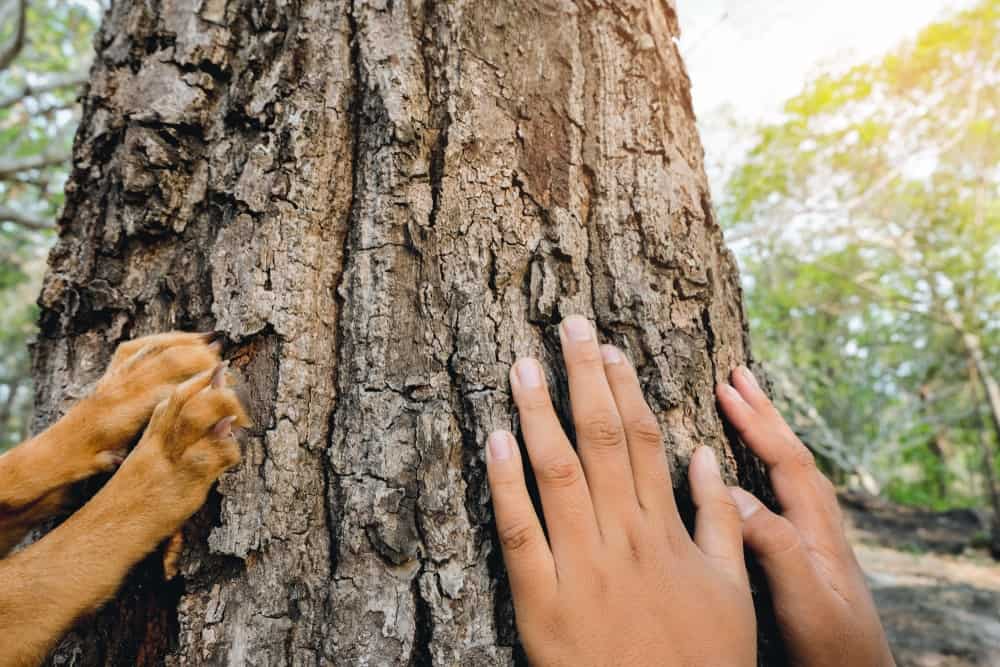What is the Environmental Impact of Owning a Dog, and Can We Lower It?
In most respects, adopting a dog changes your life for the better. Dogs provide companionship, give our lives a sense of purpose, and may even keep us healthier overall. For many pet owners, it’s easy to ride that cloud of happiness into the foreseeable future.
Unfortunately, everyone has to come back to reality sooner or later. It may be unpleasant to think about, but there are plenty of negative aspects to dog ownership. While the pros of having a dog in your life typically outweigh the cons, the negative aspects of owning a dog should be addressed sooner rather than later. Among the most concerning downsides to dog ownership involve the natural world, and pet owners should be proactive when looking for solutions.

It’s safe to say that the majority of pet owners don’t consider their pet’s environmental impact, which is more significant than you may realize. Research indicates that, on an annual basis, dogs and cats create as much carbon dioxide as the exhaust from 13.6 million cars.
The good news is that you can easily reduce your pet’s carbon footprint — by making mindful purchases of dog food, toys, and other products, for starters.
Your Pet and Carbon Emissions: Asking the Important Questions
The good news in 2020 is that there are plenty of indications that pet owners are increasingly concerned about the environment, especially among younger generations. As of 2018, millennials make up the nations’ largest pet owning generation. Today, some 35% of millennials are pet owners, and dogs are by far the most popular animal companion.
The compassion of millennials expands well beyond our furry friends, however, to encompass all aspects of daily life, from the workplace to social spaces. According to Western Governors University, in fact, “millennials feel a direct connection between their daily life and how their actions impact communities as a whole.” To that end, modern young people are extremely concerned about environmental issues, and are actively looking for ways in which to cultivate a more sustainable life for the health of the planet.
The business world has quickly followed suit, jumping on the environmentalism bandwagon in order to better attract the spending power of millennial consumers. Eco-conscious pet owners today have a plentiful assortment of sustainable options in dog toys, treats, food, and beyond.

You Are What You Eat, and So is Your Dog
In regards to the environment, your pet’s food is one of the biggest sources of contention. Commercial dog food has been around for almost a century, and its production requires a slew of natural resources, including land and water. In addition, the pet food manufacturing process typically relies on fossil fuels for energy, which contribute to air pollution and subsequent global warming.
When you’re making the switch to responsibly sourced dog food, look for brands that contain sustainable ingredients and are minimally processed. Nutrition is of paramount importance as well; don’t make the mistake of compromising protein content for the sake of sustainability. Your dog’s daily diet should contain 2 grams of high-quality animal protein per kilogram of body weight. What’s more, the emphasis on animal-based protein should not be overlooked, as there is little to no evidence that supports the safety of feeding dogs a vegan diet over the long term. To ensure optimal nutrition alongside environmental stewardship, look for sustainably sourced dog food with animal meat as the primary ingredient.
Sustainable Pet Ownership on a Large Scale
As the demand for sustainable pet food options grows, kibble production companies are working to fuel that demand, so much so that the sustainable dog food market is virtually saturated. Reducing your dog’s environmental impact involves much more than sustainable dietary choices, however; it also encompasses concepts such as pet waste reduction.

In the nation’s greenest cities, including San Francisco and Chicago, local governments offer various resources aimed at helping pet owners to become more sustainable. Among those resources are official websites that outline sustainable procedures for disposing of pet waste.
And make no mistake: pet waste is a huge problem, in rural and urban communities alike. In the city of Seattle alone, about 50,000 pounds of pet waste is produced by the city’s dogs and cats on a daily basis. In order to keep pet waste from polluting ground water, dog excrement should be promptly picked up and disposed of in the garbage, rather than discarded with yard waste or recycling.
Key Takeaways
As we continue to see the effects of climate change, more and more forward-thinking young people are scrambling for ways to combat the air, ground, and water pollutants that are wreaking havoc on the planet. For their part, dog owners are taking a closer look at the environmental impacts of owning a pet, and changing their behavior to promote greater sustainability. Eco-conscious dog owners can immediately lower their pet’s environmental impact by being vigilant in regards to waste cleanup, and by swapping highly processed dog food for sustainably sourced, local options.
Jori Hamilton is a writer from the pacific northwest. You can follow her on twitter @HamiltonJori and see more of her work at writerjorihamilton.contently.com.




